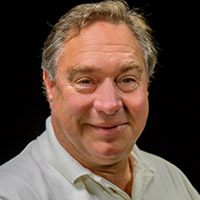Pushing the Boundaries of Science and Technology since 1973: Terrific Insight from Dr. Lee Hood

See Dr. Lee Hood‘s recent interview with Alan Olsen: about pushing the boundaries of science and technology: https://youtu.be/60DDZ0MJ8QE
Dr. Lee M. Hood is best known for his development of technologies which have enabled the advancement of predictive, preventative medicine. Dr Hood’s journey began at a young age, when he was an assistant professor of molecular immunology at California Institute of Technology in 1973. After being appointed Chief Strategy Officer for the Institute for Systems Biology in 2000, he was invited to become its Chief Science Officer.
During his career, Dr Hood has been at the forefront of pushing the boundaries of scientific and social issues. He has developed several technologies which have enabled predictive drug discovery and systems medicine, including systematically perturbed metabolic networks and automated DNA sequencing.
In addition, he has created the groundbreaking technology of free-living cell sorting, which allows for the isolation of single cells that can be studied to gain insight into processes such as gene expression and transcriptional control.
Science, the Human Genome Project
One of Dr Hood’s greatest achievements has been his involvement in the Human Genome Project. He developed one of the first automated DNA sequencers, which enabled the initial physical map and sequencing of the human genome. This contribution was essential for identifying and locating genes on human chromosomes and enabled scientists to have a better understanding of how our genetic makeup impacts our health and health care system.
Dr Hood has also been instrumental in developing technologies which are helping to revolutionize medical diagnostics and treatment. He has developed color-coded probe pairs that can detect multiplexed measurements of gene expression, enabling the discovery of disease-perturbed networks. This technology is being employed in three clinical trials for early detection of breast cancer, using proteomic analyses to predict the probability of metastasis.
Systems Thinking and Systems Approach: Keys for Optimal Wellness
Dr Hood’s systems thinking approach has been integral in developing technologies which are enabling precision medicine, as well as predicting and managing health trajectories. He believes that by focusing on a systems approach, such as integrated genomic and proteomic analyses, one can identify the underlying causes of disease and optimize wellness.
Dr Hood is also an advocate for utilizing data collected from whole genome sequencing and advanced technologies such as mass spectrometry to develop machine learning-based predictive models that can lead to better health outcomes.
Complex Protein Mixtures Tool
Dr Hood also developed a tool for the analysis of complex protein mixtures that has been instrumental in three clinical trials. This technology allows for the direct, multiplexed measurement of protein activities, which can be used to identify disease-perturbed networks and systems approaches. It is also an invaluable tool for precision medicine and can be used to identify early signs of disease in order to optimize wellness.
Institute for Systems Biology (ISB)
In 2000, Dr Hood co-founded the Institute for Systems Biology (ISB), which is a research organization dedicated to understanding how global systems are affected by changes in individual components. The ISB uses data collected from many sources, such as high throughput technologies and computational analyses, to develop models that can be used to inform decisions about our health, such as early detection.
Dr Hood’s team at the ISB has also developed Integrated Genomic, Proteomic and Metabolic Analyses (IGPMA) to further advance our understanding of disease processes, and is utilizing machine learning to develop predictive models for optimizing wellness.
Dr Hood continues to make significant contributions to science and technology by pushing the boundaries of our understanding. His approach to systems medicine and use of new technologies, such as whole genome sequencing, mass spectrometry, color-coded probe pairs, automated DNA sequencers and data clouds is helping us to gain further insight into how diseases develop and progress. This research will no doubt continue to shape the future of personalized medicine.
Technology, Molecular Biotechnology
In addition to his work in systems medicine, Dr Hood also works on the development of molecular biotechnology. In 2000, he established the department of Molecular Biotechnology at the University of Washington, which introduces research from cross disciplinary biology, chemistry and computer science.
He is also actively involved in several projects aimed at developing technologies for researching Alzheimer’s and cancer, as well as developing new antibiotics and antivirals to combat emerging diseases.
Through his work, Dr Hood has set the stage for a future of precision medicine, where treatments are personalized to an individual’s genetic makeup and lifestyle. His vision is also one of optimizing wellness through a better understanding of how our bodies function at the molecular level.
By leveraging advances in data science, machine learning and systems biology he has created an environment for research that is driving us closer to personalized medicine at a faster pace than ever before. His passion and dedication to his field have had a profound impact on the way we think about health and wellness. He continues to set the bar high for innovators and researchers alike, pushing us all to uncover new insights into how our bodies work and the science behind disease.
Dr Hood’s passion and dedication to his field have earned him numerous awards and honorary doctorates throughout his career. He has been inducted into both the National Academy of Sciences and the National Academy of Engineering and has received numerous awards from organizations such as the American Association for the Advancement of Science, the National Institutes of Health, and the Institute of Medicine. He is a true pioneer in the field of systems medicine and personalized health care, and his work will continue to shape our understanding of disease and wellness for years to come.
To view more content like this, click here to subscribe to our YouTube channel
And click here to receive our FREE Newsletter.


Thank You!

Insynctive | Gary Goldstein
Transcript, Insynctive | Gary Goldstein Alan Welcome back. I’m visiting here today with Gary Goldstein. And Gary is the founder of instinctive. Gary, welcome to today’s show, Gary Hey thanks Alan! I appreciate you having me here today. Alan So Gary, for the listeners, can you give me your background and how you got to…
How I Got Into Philanthropy | Jay Brasher
About Jay Brasher Back in the 1970’s Jay and his wife made the decision to be be involved the Indian Placement Program by taking an 8 year old Navajo girl into their home during the school year so she could attend school where the Brasher’s lived- it was a big deal at the time…
The Fundamental Purpose of Technology | Peter Adams
About Peter Adams Peter Adams is Founder & CEO of Lighthouse, having launched the firm 33 years ago while working as a deployment specialist in the health care information systems arena. In a moment of epiphany, he realized that the primary goals of his complex projects were not to make some new IT technology…
Anthony Thompson – United Business Bank
About Anthony Thompson Anthony is a Senior Vice President, Commercial Loan Officer at United Business Bank. Prior to his career in Banking Anthony was Vice President, Director of Marketing at Proudfoot Consulting/Phillip Crosby Associates. Anthony also worked as special assistant to US Senator David D. Karnes, and the first woman elected to the US Senate,…




